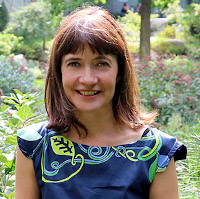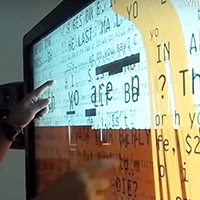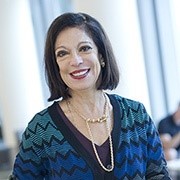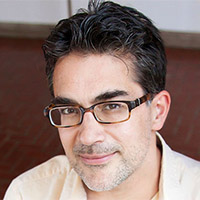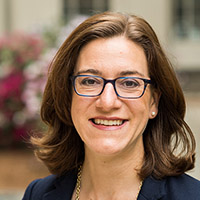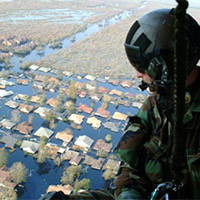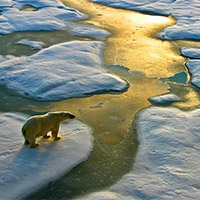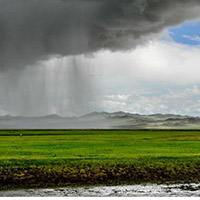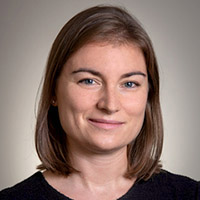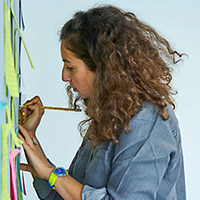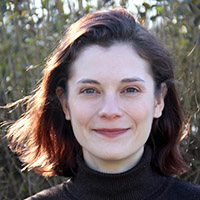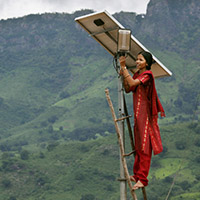CLIMATE
Solving Climate | Humanistic Perspectives from MIT
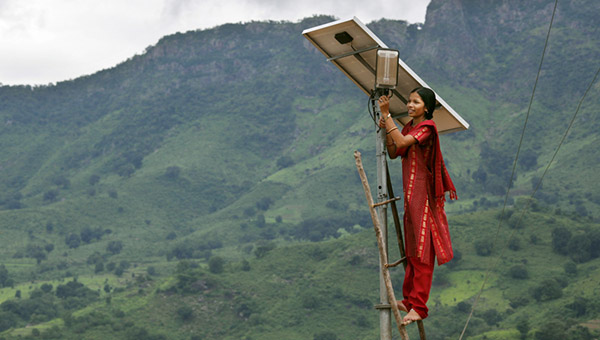
A solar engineer maintains street lighting in Tinginaput, India; Photo: Abbie Trayler-Smith/Panos Pictures
In this ongoing series, MIT faculty, students, and alumni in the humanistic fields share ideas and research that are significant for solving the economic, political, ethical, and cultural dimensions of climate change.
Also visit
Fast Foward: MIT's Climate Action Plan
MIT Council on an Uncertain Human Future
|
|
Given what we know, how do we live now? |
|
Bettina Stoetzer Class of 1948 Career Development Associate Professor of Anthropology Envisioning a livable future
|
|
|
The Civic Design Initiative Lab in Comparative Media Studies/Writing Conversations at the frontline of climate
Novel communications infrastructure from the CMS/W-based Civic Design Initiative (CDI) aims to support communities on the frontlines of the climate crisis. In its flagship endeavor, the Deep Listening Project, CDI works with a frontline communities in Nepal and indigenous tribes in the U.S. and Canada. The goal is to co-design technologies that enable institutions and frontline communities to collaborate towards effective, just climate adaptation. The project is one of 28 finalists in the MIT Climate Grand Challenge."
|
|
|
Nazli Choucri Professor of Political Science
MIT Political scientist Choucri discusses challenges and hopes for global coordination on sustainability and climate issues — and the role of political science in the process. More
|
|
|
Kieran Setiya Professor of Philosophy Why do some people call climate change an “existential threat”?
What does an “existential threat” really mean, and why are so many people in positions of responsibility now using this phrase? Kieran Setiya, an MIT professor of philosophy who co-teaches "The Ethics of Climate Change," offers a three-part response. Commentary |
|
|
John D. Sutter Fellow, Knight Science Journalism Program
Stop blaming yourself for the climate crisis.
Sutter, a Fellow in our KSJ Journalism program writes, "The narrative must shift from one of individual responsibility — if I turn off this lightbulb, I'm saving the planet — to one of governmental and corporate accountability. In the United States, this means the voting public must force Congress to enact sweeping climate legislation." Commentary at CNN
|
|
|
Anne McCants Professor of History, Director, MIT Concourse Program How, in the nadir of the Little Ice Age, did the Dutch generate a Golden Age? "History shows that not everywhere fares equally poorly when faced with climatic stresses. Open-access societies — ones that tolerate a diversity of views and do not restrict agency to a preordained elite — have proved more innovative and resilient than less-open ones." For example: the 17th century Dutch Republic. Commentary |
|
|
Sami Grover Undark Magazine, Knight Science Journalism
Opinion: The messy truth about carbon footprints
|
|
|
Kieran Setiya Professor of Philosophy "Almost anyone engaged with global issues of human well-being, the distribution of resources, or the future of society is doing moral philosophy. Even the most technocratic assessment of costs and benefits makes assumptions about the value of human life and the demands of justice." Commentary |
|
|
|
Parrish Bergquist '19
The significance of civic opinion |
|
|
|
Abdul Latif Jameel Poverty Action Lab | J-PAL Toward evidence-informed climate policy
Amid the coronavirus pandemic, the connections between human and planetary health are clearer than ever. J-PAL generates evidence to reduce climate damage, build more climate-resilient societies, and help leaders choose effective programs to combat climate change. (Image: Produce vendor in Lahore, India, in smog) Commentary |
|
|
|
Abdul Latif Jameel Poverty Action Lab Poverty and climate change issues are closely related. In this commentary you'll find a overview of J-PAL North America's contributions to the evidence base in environment, energy, and climate and a look at its agenda for further climate research in North America. (US Air Force Image: Overflying a flooded region) Commentary |
|
|
|
Comparative Media Studies/Writing
In CMS.375 students explore how climate is construed in the contemporary media in order to gain a better understanding of how views of climate change are shaped and received in the public sphere. And, they learn how to craft effective climate stories and messages themselves. Story |
|
|
|
Thiago Medalgia Knight Science Journalism Fellow, 2020 Science communications for a world in crisis |
|
|
|
Abdul Latif Jameel Poverty Action Lab |
|
|
|
Anthropology, History, and EAPS Climate change linked to rise and fall of medieval nomadic empires.
|
|
|
|
Amy Moran-Thomas
Clare Balboni 3M Career Development Assistant Professor of Environmental Economics On Enviromental Economics and Policy |
|
|
|
Nadia Christidi PhD candidate, HASTS Program (History; Anthropology; Science, Technology, and Society) Imaginative Capacities: The Arts & the Future of Water
Christidi's research focuses on three cities and the role that the arts play in the ability of planning institutions to imagine and plan for possible futures. "As climate change gets underway, we’re seeing a lot more emphasis on adaptation, and imagination is key to adapting to a set of totally different circumstances," she says. "This belief has led me to explore the 'imaginative capacities' of planning institutions, the impact of popular culture imaginaries on our preparations for the future, and the role that creative practitioners can play in expanding our imaginative possibilities." |
|
|
|
Caroline White-Nockleby
On the socio-environmental complexities of renewable energy |
|
|
|
MIT SHASS Community
Keeping humanity central to solving climate change
MIT scholars in the School of Humanities, Arts, and Social Sciences are helping to solve the economic, cultural, political and policy dimensions of the world's energy and climate challenges.
MIT Open Courseware
A directory of 20+ free, climate-related humanistic classes at MIT Here you will find courses in economics, philosophy, public policy, writing, anthropology, and other fields that provide key perspectives for understanding climate change — and alleviating its impacts. Gallery of OCW Humanistic Climate Courses
Forthcoming
MIT Climate Resources
Fast Forward
The MIT Council on an Uncertain Human Future MIT Environmental Solutions Initiative
MIT Energy Inititiatve | Renewable Energy Sources
MIT Dept of Earth, Atmospheric & Planetary Science | Climate Research
|
|
|
|
|
|
|
|
||
|
|

